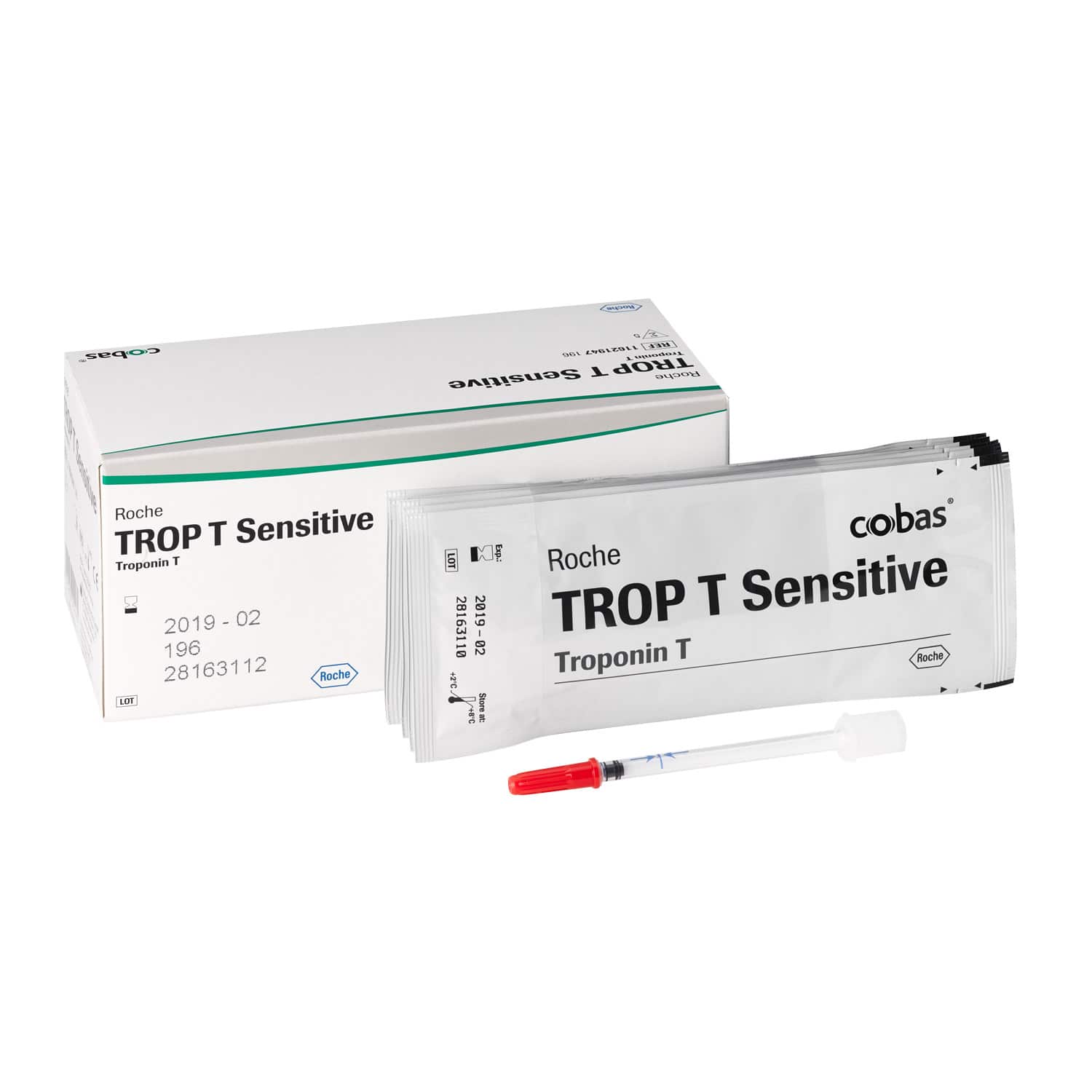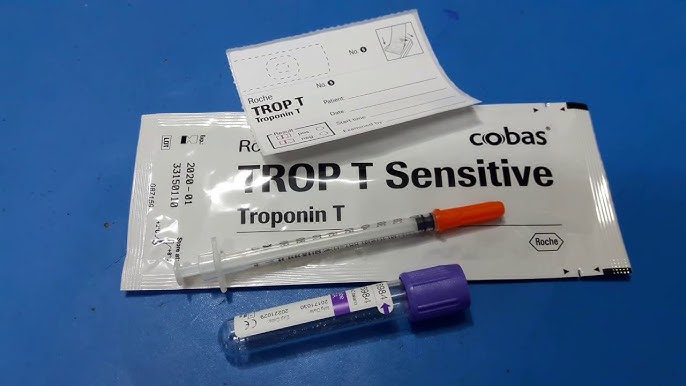Cobas Trop T Sensitive Test Kit

Cobas Trop T Sensitive Test Kit

Troponin T Rapid Test Cassette – Fast & Reliable Detection for Myocardial Infarction (Heart Attack)
The Troponin T Rapid Test Cassette is a highly sensitive, single-use in vitro diagnostic device designed for the early and accurate detection of myocardial infarction (MI), commonly known as a heart attack. This Troponin T-sensitive cassette test is an essential tool used in emergency rooms, intensive care units, clinics, and ambulatory settings where immediate diagnosis and treatment of cardiac patients are critical. As heart attacks remain one of the leading causes of death globally, early identification through reliable markers like troponin T is vital for saving lives and minimizing heart damage. This diagnostic test works by detecting elevated levels of cardiac-specific Troponin T protein in a patient’s blood, which is released when there is injury to the heart muscle. The higher the troponin concentration, the more significant the damage—making this a highly reliable biomarker for heart attack confirmation.
Why Troponin T Matters in Heart Attack Detection
Troponin T is a cardiac-specific protein that plays a key role in muscle contraction. When the heart experiences injury—such as during a myocardial infarction (MI)—the cells of the heart muscle release troponin proteins into the bloodstream. Among these, Troponin T is one of the most reliable biomarkers for detecting even the slightest cardiac damage.
Key Features and Benefits (in-line bullet format):
Rapid results in 15–20 minutes • High sensitivity to Troponin T biomarkers • Easy-to-use cassette format • Requires only a small blood sample • Portable and ideal for emergency or field use • Reliable indicator of myocardial infarction • No additional equipment required • Cost-effective solution for fast cardiac screening • Manufactured using durable plastic components • Used widely in ICUs, ERs, and ambulatory care centers.

How It Works – Troponin Detection for Cardiac Injury
The test is based on lateral flow immunoassay technology, which provides quick, visual results through a colored line on the test strip. When a small volume of blood is added to the cassette, it migrates through the strip, interacting with antibodies that detect the presence of Troponin T. The appearance of a colored test line and control line within the result window indicates a positive result, signaling possible heart muscle damage. Its high sensitivity and specificity help in reducing false negatives and ensuring early-stage detection.